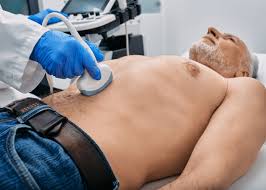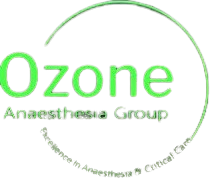
eFAST Course
Extended Focused Assessment with Sonography for Trauma (eFAST) Course
Introduction
The Extended Focused Assessment with Sonography for Trauma (eFAST) course is a comprehensive, hands-on training program designed to provide medical professionals with the skills and confidence to perform bedside ultrasound in trauma settings. As an evolution of the traditional FAST exam, eFAST includes evaluation of the thoracic cavity to detect pneumothorax and hemothorax, significantly enhancing diagnostic capabilities in emergency scenarios. This course is an essential tool for emergency medicine physicians, trauma surgeons, and critical care providers, improving the speed and accuracy of life-saving decisions.
Course Objectives
Participants of the eFAST course will:
- Understand the principles of ultrasound and its application in trauma care.
- Master image acquisition techniques for the abdominal, cardiac, and thoracic cavities.
- Accurately identify free fluid, pericardial effusion, pneumothorax, and hemothorax.
- Develop the ability to incorporate ultrasound findings into trauma management algorithms.
- Enhance their diagnostic confidence in high-pressure clinical situations.
Target Audience
This course is ideal for:
- Emergency Medicine Physicians
- Trauma Surgeons
- Critical Care Physicians
- Anesthesiologists
- Paramedics and Pre-Hospital Providers
- Residents and Fellows in Emergency and Surgical Specialties
- Medical Students and Allied Health Professionals interested in POCUS
Curriculum Overview
The eFAST course blends theoretical instruction with practical, hands-on scanning sessions to ensure participants gain both knowledge and experience. Core modules include:
- Introduction to Point-of-Care Ultrasound (POCUS)
- Ultrasound Physics and Instrumentation Basics
- Abdominal and Pelvic Assessment (Traditional FAST)
- Pericardial Window Evaluation
- Thoracic Views for Pneumothorax and Hemothorax Detection
- Clinical Indications and Limitations of eFAST
- Interpretation of Normal and Pathological Findings
- Ultrasound-Guided Clinical Decision-Making
- Documentation, Image Storage, and Quality Assurance
Hands-On Training
A cornerstone of the eFAST course is its emphasis on experiential learning. Participants will work in small groups to practice scanning on live models and ultrasound simulators. Faculty members, consisting of experienced emergency and critical care clinicians, will provide personalized feedback and guide learners through real-world case scenarios. This approach ensures skill retention and boosts clinical readiness.
Teaching Methodology
To maximize engagement and retention, the course employs a variety of instructional methods:
- Interactive Lectures with Multimedia Presentations
- High-Fidelity Ultrasound Simulations
- Live Model Demonstrations
- Case-Based Learning and Group Discussions
- Supervised Scanning Sessions
- Skills Assessment and Competency Checklists
Certification and Continuing Education
Upon successful completion of the course, participants will receive a Certificate of Completion. Continuing Medical Education (CME) credits may be awarded, depending on institutional or national accreditation standards. Post-course access to educational materials, videos, and image libraries will also be provided to support ongoing learning.
Clinical Relevance and Impact
In time-sensitive trauma situations, early diagnosis of internal bleeding or chest injuries can make the difference between life and death. eFAST empowers clinicians to make rapid, evidence-based decisions, improving patient outcomes while reducing reliance on time-consuming imaging modalities. Its integration into Advanced Trauma Life Support (ATLS) protocols and emergency department workflows highlights its value in modern trauma care.
Feedback and Testimonials
“This course transformed how I manage trauma patients. The hands-on experience was invaluable.” – Dr. Neha S., Emergency Physician
“eFAST should be a mandatory part of trauma training. The instructors were phenomenal.” – James R., Trauma Surgeon
“I now feel confident using ultrasound at the bedside. Great balance of theory and practice.” – Priya M., Critical Care Fellow
Conclusion
The eFAST course is a must-attend for any healthcare provider involved in trauma care. Through a combination of expert instruction, practical training, and real-world relevance, it delivers the skills needed to perform life-saving ultrasound evaluations. Whether you are a novice or looking to refine your technique, this course provides a structured and effective pathway to mastery in trauma ultrasound.
.Date
29-04-2025
Course Faculty
Dr Balaji Asegaonkar
Course Syllabus
Introduction
Course Objectives
Course Fees
Na
